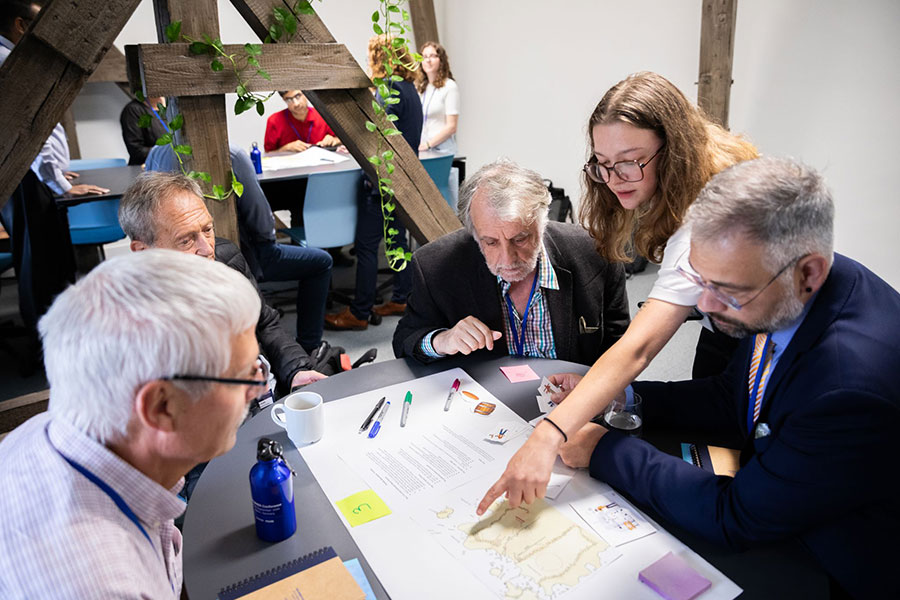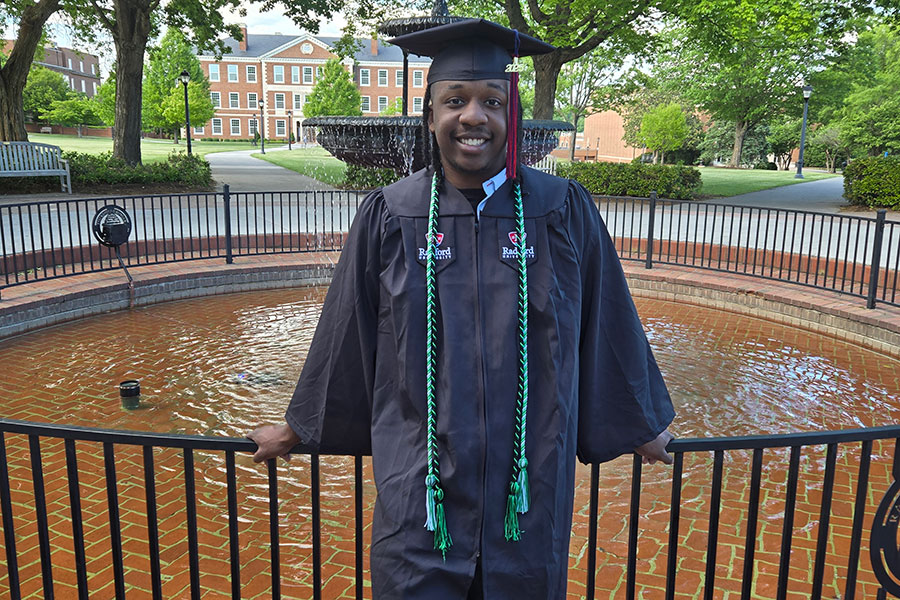Radford University
Radford News
2025 Top Adventure College
#1 in the Southeast and Mid-Atlantic
Thanks to the strong support from students, faculty, staff, alumni and fans, Radford rose to the top for its incredible access to outdoor recreation, thriving campus culture and commitment to adventure. With the New River and Blue Ridge Mountains as our backyard, there's no better place to learn and explore.
Latest News
-
Governor’s School provides unique, hands-on learning experiences with Radford faculty
August 1, 2025
More than 300 Virginia high school students attended the Governor’s School for Visual and Performing Arts and Humanities this summer at Radford University.

-
Welcoming new chief of staff, James "Ryan" Bowyer
July 21, 2025
Radford University is pleased to welcome James "Ryan" Bowyer, M.S. ’12, as the new chief of staff in the Office of the President.

-
Radford University receives $600K grant to launch Highlander Center for Character and Public Impact
July 16, 2025
Radford University has been awarded a $604,396 grant from the Educating Character Initiative (ECI) through the Program for Leadership and Character at Wake Forest University.

-
When Adam Hamze arrived at Radford University, he thought his future was in medicine. But a tough chemistry class and an unexpected stop at a student club fair set him on a new course, one that felt like home.

-
Highlander Highlights: July 2025
July 11, 2025
Highlander Highlights shares with readers some of the extraordinary research and accomplishments happening on and off campus through the tireless work and curiosity of our students and faculty.

-
On June 26, Radford University hosted its annual reception and luncheon to celebrate 32 years of partnership with the Scottish Rite and 30 years of the specialized summer programs made possible by their support.

-
Walking around inside his mother’s house, Sam Williams ’25 uttered a sentence you don’t often hear: “I’m excited to wake up every day thinking about hacking."

-
Student's research delves into the oppression women face in Afghanistan under the rule of the Taliban.

